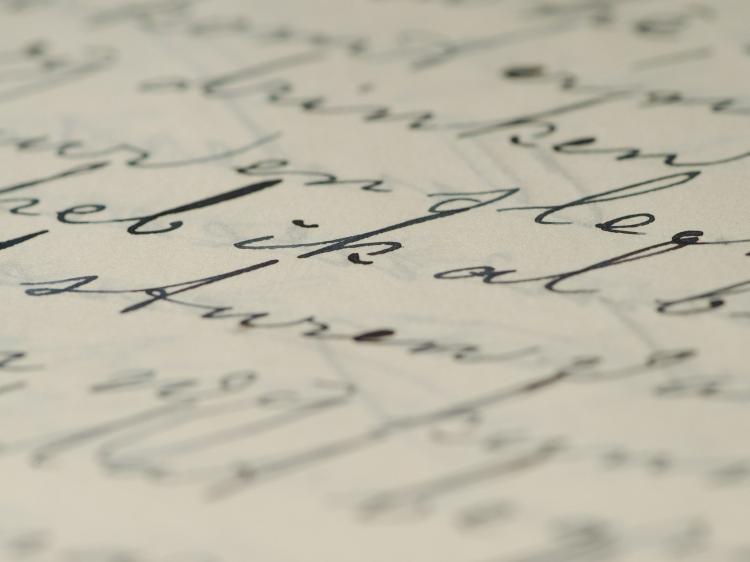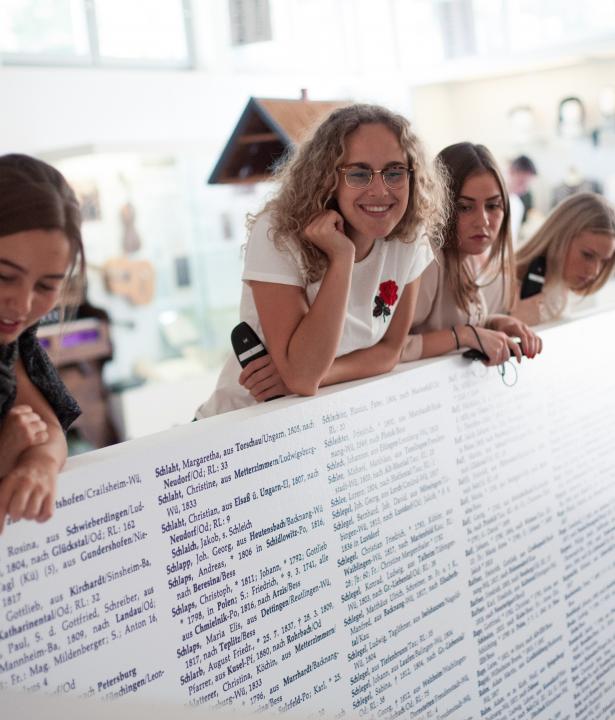The virtual exhibition "Russian-Germans", which has been created at the Martin Opitz Library, focuses on Russian German literature. By focusing on the literary works of this heterogeneous group, the exhibition doesn't just talk about the Russian-Germans, but gives them a voice and listens carefully.
Text
Since
“the "Lisa case"“
“the "Lisa case"“
In 2016, 13-year-old Lisa, a Russian-German from Berlin, claimed to have been abducted and raped by "southerners" (Arab migrants). The case became a political issue. Lisa later admitted to having invented the crimes.
, the topic of Russian-Germans has once again moved into the focus of German media and society. At that time, the debates and media coverage of the topic revealed the discrepancy between the major relevance of this group, on the one hand, and the limited knowledge about them on the other – both in society as a whole and on the part of the Russian Germans themselves. This is a phenomenon that has existed since the early 1990s.
The virtual exhibition "Russlanddeutsche - Die Zeiten des Umbruchs" ("Russian-Germans – Times of Radical Change") offers a variety of approaches to this topic. Specifically, it offers both a chronological overview of the history of the Russian Germans as well as deeper insights through a range of digitized exhibits and literature.
The exhibition focuses quite deliberately on the ambivalent and eventful period from the October Revolution in 1917 to the collapse of the USSR in 1991. During this period, which includes both the existence of the German national rajons in the Russian Federation and Ukraine and the only historical settlement area of the Germans with the status of an autonomous republic, as well as their repression and exclusion, the German minority in the Soviet Union experienced ups and downs.
In addition to politics and history, the exhibition examines Russian-German literature, providing an overview of the literary history of this minority in the Soviet Union. Furthermore, rather than talking about this group and portraying them as a homogenous entity, the literary component honors and gives them a voice, presenting not just one, but many diverse perspectives.
The virtual exhibition "Russlanddeutsche - Die Zeiten des Umbruchs" ("Russian-Germans – Times of Radical Change") offers a variety of approaches to this topic. Specifically, it offers both a chronological overview of the history of the Russian Germans as well as deeper insights through a range of digitized exhibits and literature.
The exhibition focuses quite deliberately on the ambivalent and eventful period from the October Revolution in 1917 to the collapse of the USSR in 1991. During this period, which includes both the existence of the German national rajons in the Russian Federation and Ukraine and the only historical settlement area of the Germans with the status of an autonomous republic, as well as their repression and exclusion, the German minority in the Soviet Union experienced ups and downs.
In addition to politics and history, the exhibition examines Russian-German literature, providing an overview of the literary history of this minority in the Soviet Union. Furthermore, rather than talking about this group and portraying them as a homogenous entity, the literary component honors and gives them a voice, presenting not just one, but many diverse perspectives.
Externe Links
External Image








